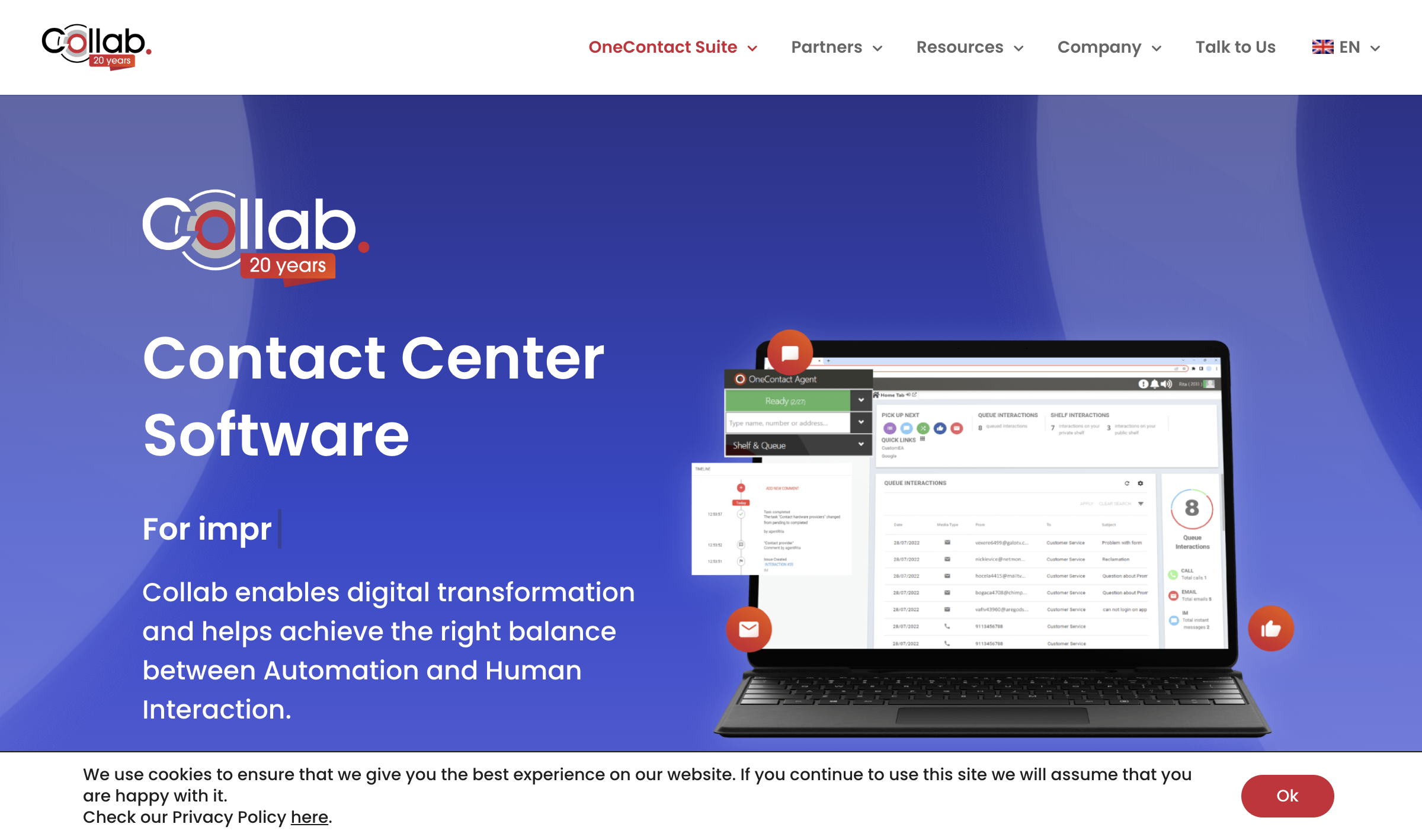

Collab.com
Collab refers to two distinct examples: Google Colab and Collab Contact Center Software. In this blog post, we will focus on Google Colab. It is an online coding platform that offers a range of features like free GPU and TPU access, compatibility with Jupyter notebooks, and easy data importing.





About Collab.com ℹ️
Google Colab is an online platform that allows users to write and execute Python code in a browser environment. It provides access to free GPUs and TPUs, making it suitable for tasks such as data science, machine learning, and education. Colab notebooks, which are compatible with Jupyter notebooks, can be seamlessly shared with others. Users can import data from various sources like Google Drive, GitHub, or external URLs. While Colab is free to use, there is an option to upgrade to a paid plan for additional resources and features.
Pros ✅
- Enhances customer engagement and satisfaction through a suite of contact center software solutions.
- Integrates seamlessly with leading CRM platforms and offers an omni-channel contact management system with comprehensive interaction history for every client.
- Leverages artificial intelligence to optimize the quality and efficiency of customer service.
- Supported by a strong network of partners and caters to diverse sectors such as banking, insurance, healthcare, retail, and more.
Cons ❌
- May not be compatible with non-cloud-based or web-based legacy systems and applications.
- Requires training and adaptation for agents and managers to effectively utilize its features and functionalities.
- May have limitations or additional costs related to scalability, security, customization, or support, depending on the chosen plan.
- Faces competition from other contact center software providers like Genesys, Five9, NICE inContact, or Zendesk.